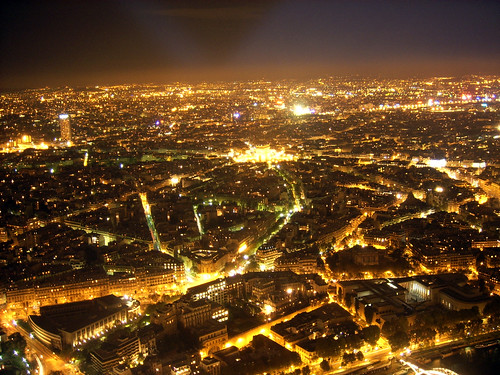
Light pollution is the obscuring of celestial objects by artificial light sources.
What do you do about it?
You avoid city lights, if you can. The recent trend toward those peach-colored, highpressure, sodium-vapor and bluish metal-halide streetlights may make some people feel safer, but the lamps have also greatly increased light pollution, even in smaller urban areas.
Here are some ways to reduce the effects of light pollution:
- Rise above the streetlights. Set up your telescope on a hill or a safe roof. The cumulative effect of the streetlights will still blot out many of the less bright objects, especially near the horizon, but at least you won’t be trying to look up through the nearest streetlights.
- Study the sky in a direction away from light sources. If your city’s downtown area is east of your location, look west rather than east.
- Get out of town. Scout out some rural retreats away from the city lights but sufficiently clear of trees to allow reasonably unobstructed viewing. Local state parks are often a good option. It may be best to choose parks that offer overnight camping, since some public parks are open only from dawn to dusk. Don’t trespass!
- If you get very interested in observing, you can purchase filters for your telescope that will block out a good portion of the light pollution caused by streetlights. Such filters are available from Meade Instruments, Orion, and other suppliers. Be aware, however, that these filters are most useful for astrophotography or digital imaging and are less effective if your primary imaging device is your own retina. Also, all filters block light, dimming the image you see; so small-aperture telescopes will suffer most from this side effect.
- Write your local city government and encourage officials to install lowpressure, downward-facing sodium lamps. These lights have a yellowish glow and are highly energy efficient. You can get many good ideas on how to reduce light pollution from the International Dark Sky Association (find more at www. darksky.org/).
Unless you live in a nest of searchlights, there should still be enough for a beginner to see.

No comments:
Post a Comment